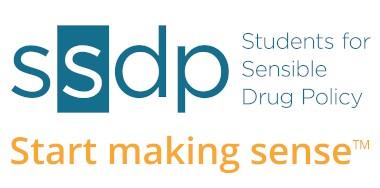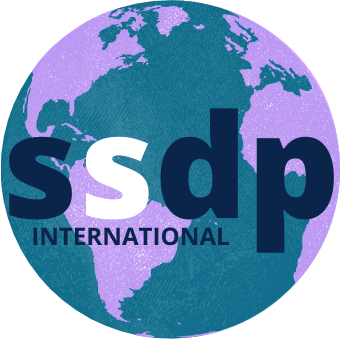Students for Sensible Drug Policy (SSDP) is the largest national youth-led network dedicated to ending the War on Drugs. With chapters across the United States, we are a national organization with a local feel—our members and alumni are replacing the disastrous War on Drugs with policies rooted in evidence, compassion, and human rights at a grassroots level.
Our chapters are our lifeblood. Each SSDP Chapter has autonomy to pursue their own goals and passions as long as it falls within the parameters of SSDP’s mission. Our students and community members work on a wide array of issues including psychedelic education, harm reduction, and prison reform.
This semester, in addition to participating in conferences and other events at the national level, SSDP’s Chapters organized a whopping 136 on-campus events at universities across the country, including 53 naloxone, fentanyl testing strips, and/or overdose reversals trainings. Chapters worked with stakeholders like the U.S. State Department and the United Nations to host educational events for international audiences. Our students lobbied for sensible drug policy in 7 different states and in the U.S. Congress. And, students throughout our network provided thousands of doses of naloxone and countless fentanyl testing strips to their peers, potentially saving hundreds of lives.
It’s hard to pick just a few, but here are ten highlights of SSDP’s Spring 2024 semester….
10. SSDP’s Pittsburgh Community Chapter was featured on Fox 56 for their Harm Reduction Advocacy Day at the Pennsylvania State Capitol in Harrisburg, PA
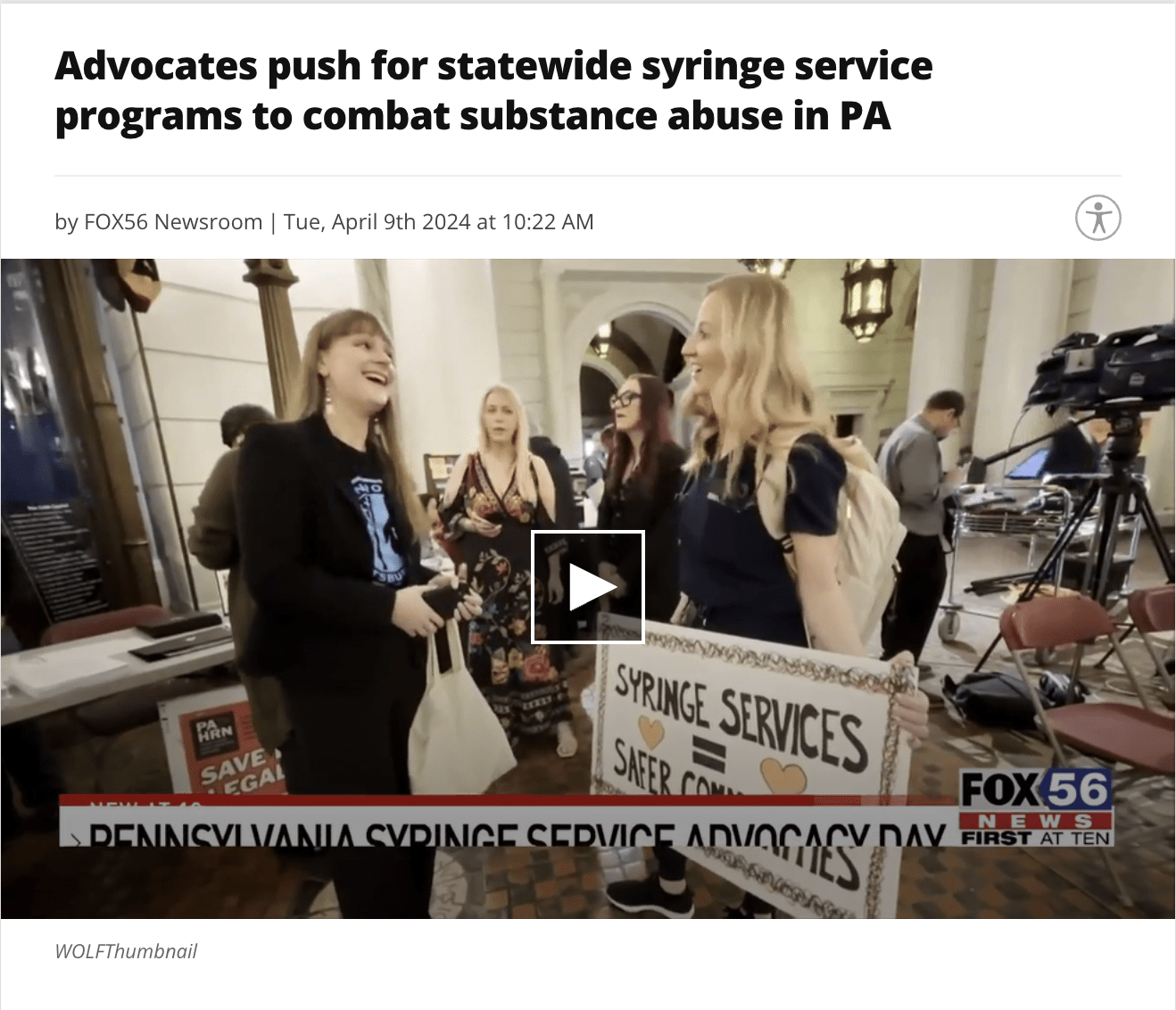
Not all SSDP chapters are university-based. Community chapters started by SSDP Alumni allow non-students to take part in SSDP off-campus as well.
SSDP’s Pittsburgh Community Chapter has been working alongside the Pennsylvania Harm Reduction Network to push elected officials to implement statewide laws allowing Sterile Syringe Services. While Pittsburgh and Philadelphia offer safe syringe programs, Pennsylvania is one of 10 states to not offer these services statewide.
Former Board Chair and Pittsburgh Community Chapter leader Julia Hilbert relayed this message at the Pennsylvania Capitol in April: “Start these programs, make them legal so we can obtain federal funding, use our opioid settlement dollars for these and ultimately save lives.”
9. Braden Lee Hopkins from the University of Alabama SSDP Chapter published a queer harm reduction zine
Queer Harm Redux is a 28-page zine that uses eye-catching design and graphics to help educate the reader on the core philosophies, principles, and history behind harm reduction.
Braden made the zine for queer young people who were unfamiliar with their history, and for people who use drugs who felt disconnected. It’s a great source for information on harm reduction programs and factual drug education. Check it out and share with your friends!
8. The University of Washington SSDP’s FunRager was a sensible success

Zoe Fanning and Anysiah Taylor from the University of Washington hosted hundreds of UW Students at a house party, concert, and fundraiser for the UW Chapter.
On top of having a good time and raising thousands of dollars to to support efforts to “End the War on Drugs and People,” the chapter distributed harm reduction and drug testing supplies to attendees.
The pictures from the event were epic! Check them out on the chapter’s Instagram.
7. Drexel University SSDP protested in support of harm reduction in front of Philadelphia City Hall
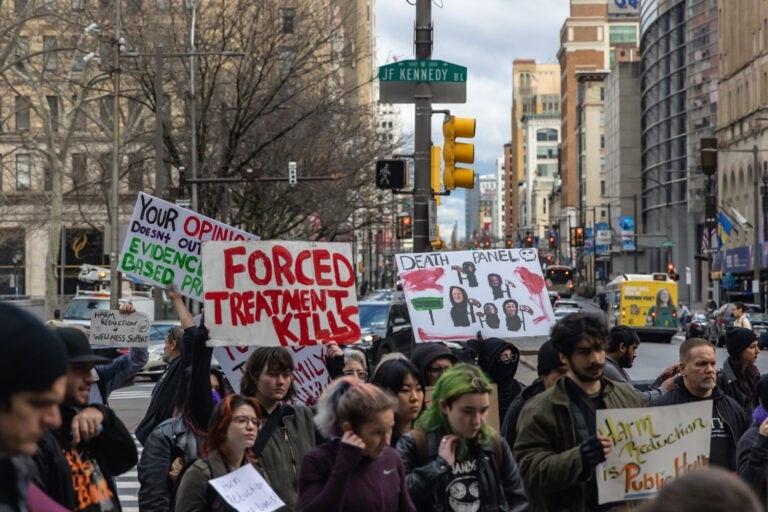
On March 7th, 2024 the Drexel University SSDP chapter joined a protest to demonstrate against the city’s actions and to stand in solidarity with Savage Sisters and other harm reduction organizations.
“As an advocate for ending the War on Drugs, harm reduction volunteer, and SSDP member, I find the actions of the Kensington Caucus and Mayor Cherelle Parker deeply disturbing,” said Drexel SSDP Chapter President (and neuropsychology major) Naomi Shifman. “Policies, such as increased policing and arrests in Kensington, forced treatment or jailing, and banning syringe service programs from receiving opioid settlement money, will only increase harms, rather than solve them. This is personal for me because I’m a Philly resident, I carry Narcan, and I’m tired of seeing people dying!”
This rally and the continued resistance to the city’s actions are vital to protecting harm reduction service in Philadelphia and throughout the state.
6. SSDP’s Chapter Development Director, Jeremy Sharp, was honored for his work in Harm Reduction by a Proclamation in the Georgia General Assembly
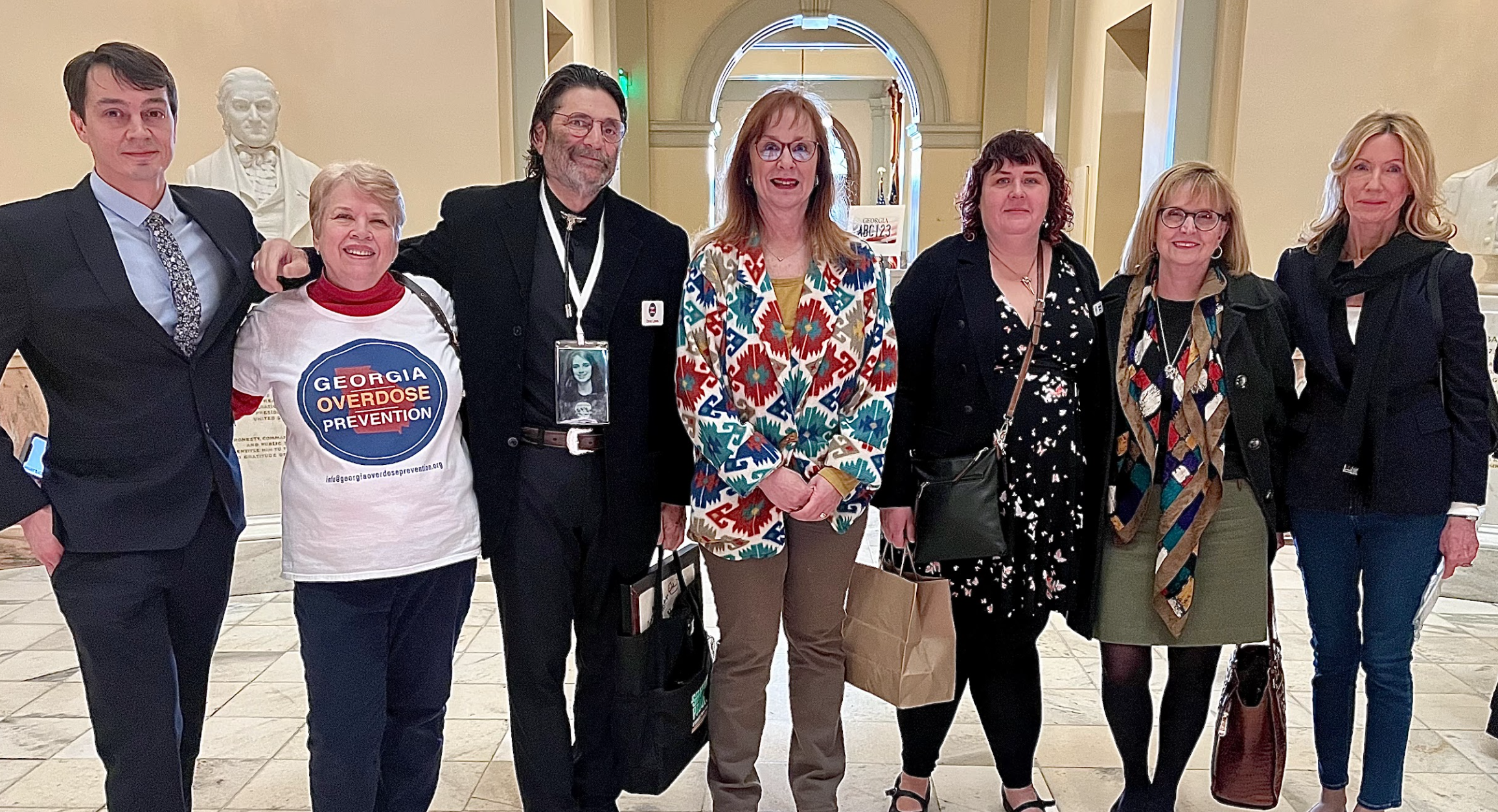
The House Proclamation honored the ten year anniversary of the passing of Georgia’s Medical Amnesty and Naloxone Access Law.
As a sophomore in college, Jeremy (then leader of the University of North Georgia SSDP chapter) helped found Georgia Overdose Prevention, an advocacy group composed of loved ones who had lost someone to overdose.
HB 965, The Good Samaritan and Naloxone Access Law was signed into law by Georgia Governor Nathan Deal on April 24th, 2014. Since then, Georgia Overdose Prevention has recorded 10,000 community administered naloxone reversals.
5. Rowan University SSDP hosted over 100 students and community members for a Cannabis Industry Networking Night in New Jersey
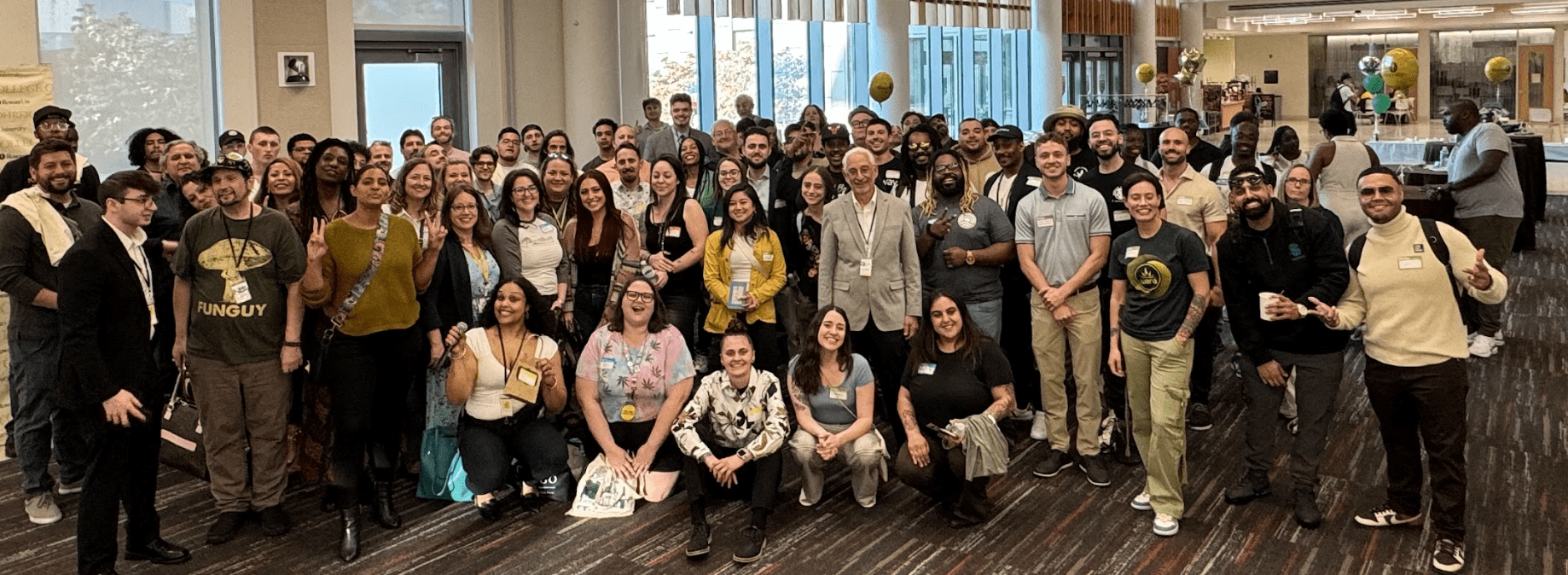
In May, Ryan Ems, Sidney Turner, and the rest of the Rowan University SSDP crew organized the first ever Cannabis Industry Networking Night at Rowan University’s Rohrer College of Business.
The night was a huge success with over 100 guests ranging from members of the cannabis industry in the retail, manufacturing, cultivation, and ancillary fields, as well as Rowan University students and SSDPers.
The event kicked off with a panel on “The State of Cannabis: A Full Spectrum Discussion,” during which chapter president Ryan Ems teamed up with Gaetano G. Lardieri to interview industry professionals, followed by a networking mixer with delicious catered food. The night concluded with a raffle with many different prizes products generously supplied by various NJ dispensaries
The chapter really worked hard to put it all together and to partner with so many different sponsors to make for a glamorous and fun evening for all.
Watch the video on the Rowan University SSDP instagram!
4. SSDPers helped break the paper shackles of prior cannabis arrests and convictions
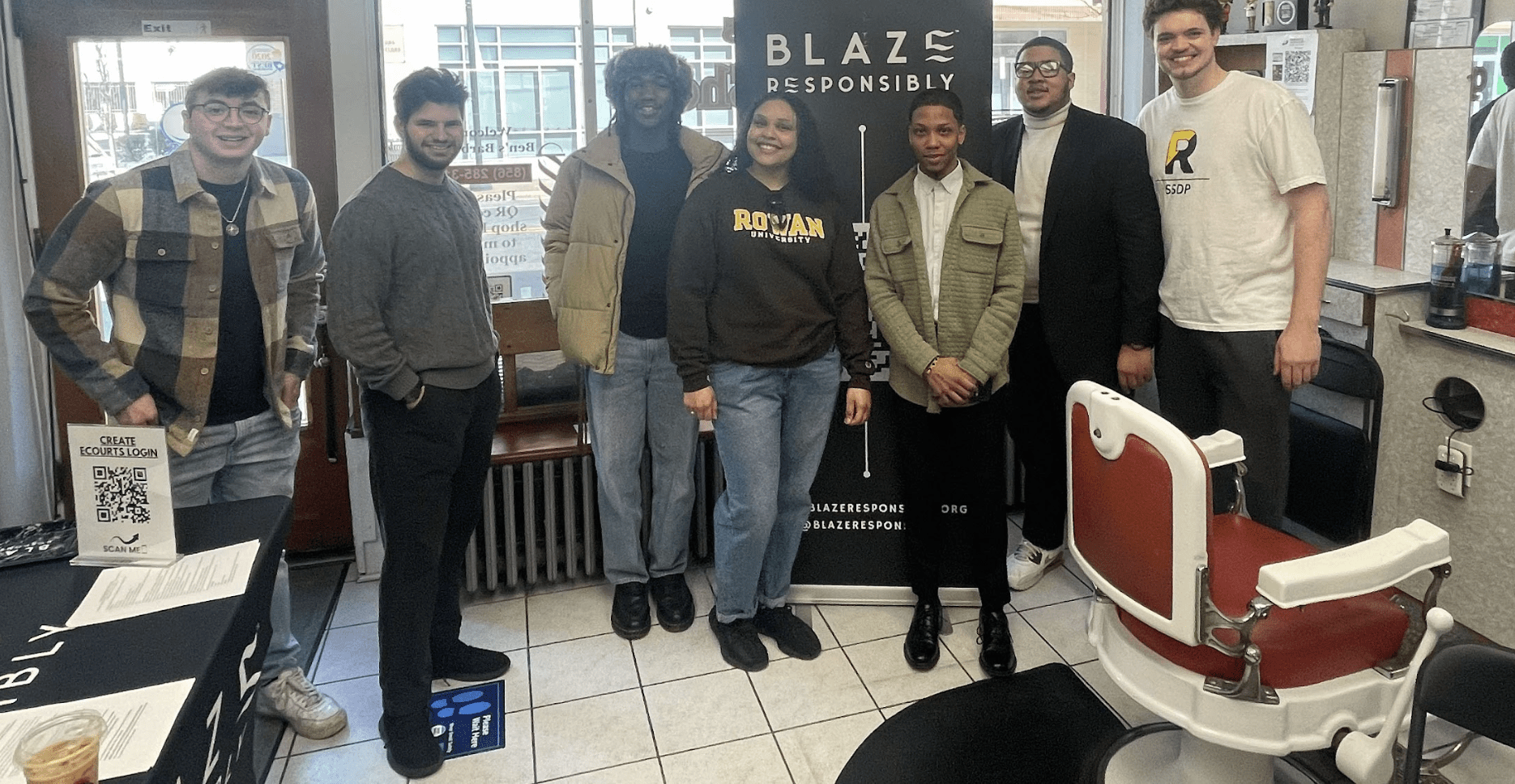
The draconian legacy of cannabis prohibition has left a deep scar on society, most notably on those who have been convicted of cannabis-related offenses and now face serious barrier to employment, housing, education, and voting rights. The complexity of expungement laws and the lack of awareness about them compound the problem. Many individuals remain unaware of their eligibility for record clearing, let alone the intricacies of the process.
This Spring, SSDP launched Breaking the Paper Shackles—our new nationwide expungement program to advance impactful policy reform and help individuals check their records and clear charges to overcome the devastating collateral consequences of a criminal record—earlier this year and, with the help of student activists and community partners, we have already hosted four expungement clinics in New Jersey and Washington D.C.
Rowan University hosted the first of these clinics (so far!) at a community barbershop in Glassboro, New Jersey, allowing attendees to get a haircut and socialize while they waited for free legal aid. The chapter also organized free refreshments in order to create a more relaxed and fun atmosphere as well as free headshots for participants to use for job searches and more. (Watch the video)
Anjolee Spence from the Phillips School of Nursing at Mount Sinai Beth Israel was also an invaluable contributor to the campaign, working tirelessly at all three D.C. clinics and helping create a database of policy obstacles to clearing records in each of the states.
3. SSDP student activists in Michigan went head-to-head with Lake Superior State University (LSSU) over medical cannabis on campus, forcing LSSU’s President to step down from his position
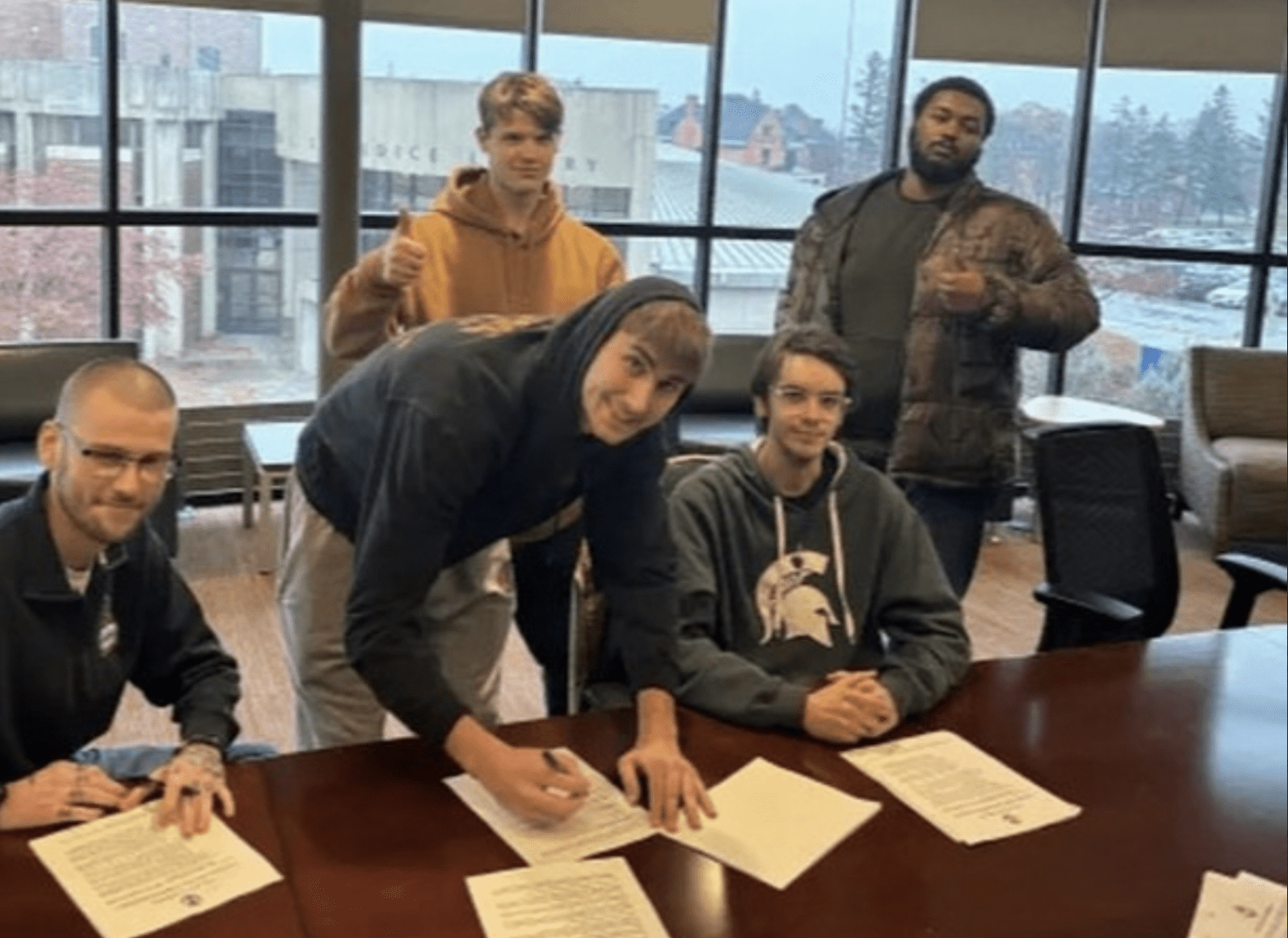
SSDP’s Jackson Rund wanted to create safe spaces for patients to use medical cannabis on the Lake Superior State University campus, but the administration was standing in the way.
Then, the school’s president was caught making obtuse remarks about the cannabis clubs by a school trustee who recorded his rude commentary. Because of negative press about the president’s comments, a vote of no confidence was issued against the school president.
The no confidence resolution passed the student council thanks to the leadership of SSDP-LSSU Chapter President (and LSSU Student Council Vice President) Jackson Rund (pictured here turning in the vote of no confidence to the school’s trustees).
Because of the student government resolution, the president was forced to step down, clearing the way for SSDP-LSSU to reintroduce the amendment for safe use on campus next semester.
2. Multiple SSDP Chapters worked with the U.S. State Department and GIMPA Law School in Ghana to co-host a hybrid seminar on US and Ghanaian Drug Policy
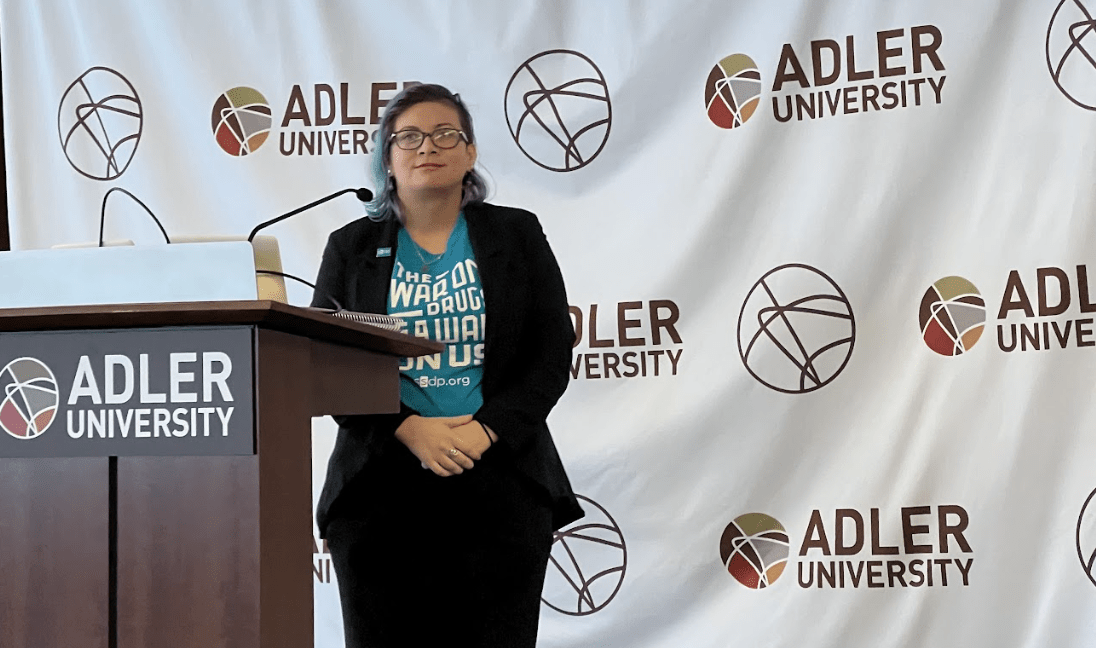
Students from four universities in two countries—Adler University (Chicago, Illinois), Columbia University (New York, New York), Fordham University (New York, New York), and Gimpa Law School (Accra, Ghana)—came together to host a hybrid symposium occurring online and simultaneously at each of the different campuses highlighting the ways in which ‘tough-on-drugs’ laws imported from Western nations have harmed Ghana and why a more human approach must now be embraced.
The event was moderated by SSDP Executive Director Kat Murti with a keynote address from Dr. Carl Hart of Columbia University. Other speakers included POS Foundation Executive Director Jonathan Osei Owusu, Dr. Kwaku Agyeman-Budu of GIMPA Law School, Dr. Catherine McNeilly of Adler University, Prof. Paolo Galizzi of Fordham University, Christopher J. Gunning, the Political Section Unit Chief of the U.S. Mission to Ghana, Maria-Goretti Ane Loglo Esq. of the International Drug Policy Consortium (IDPC), Clement Bopa Oppong of the GIMPA Law Faculty (and a former SSDP Board member!), and SSDP Adler President (as well as current SSDP Board member and former Board chair) Jeanne Porges.
1. SSDPers from across the country converged on D.C. for our 420 Week of Unity
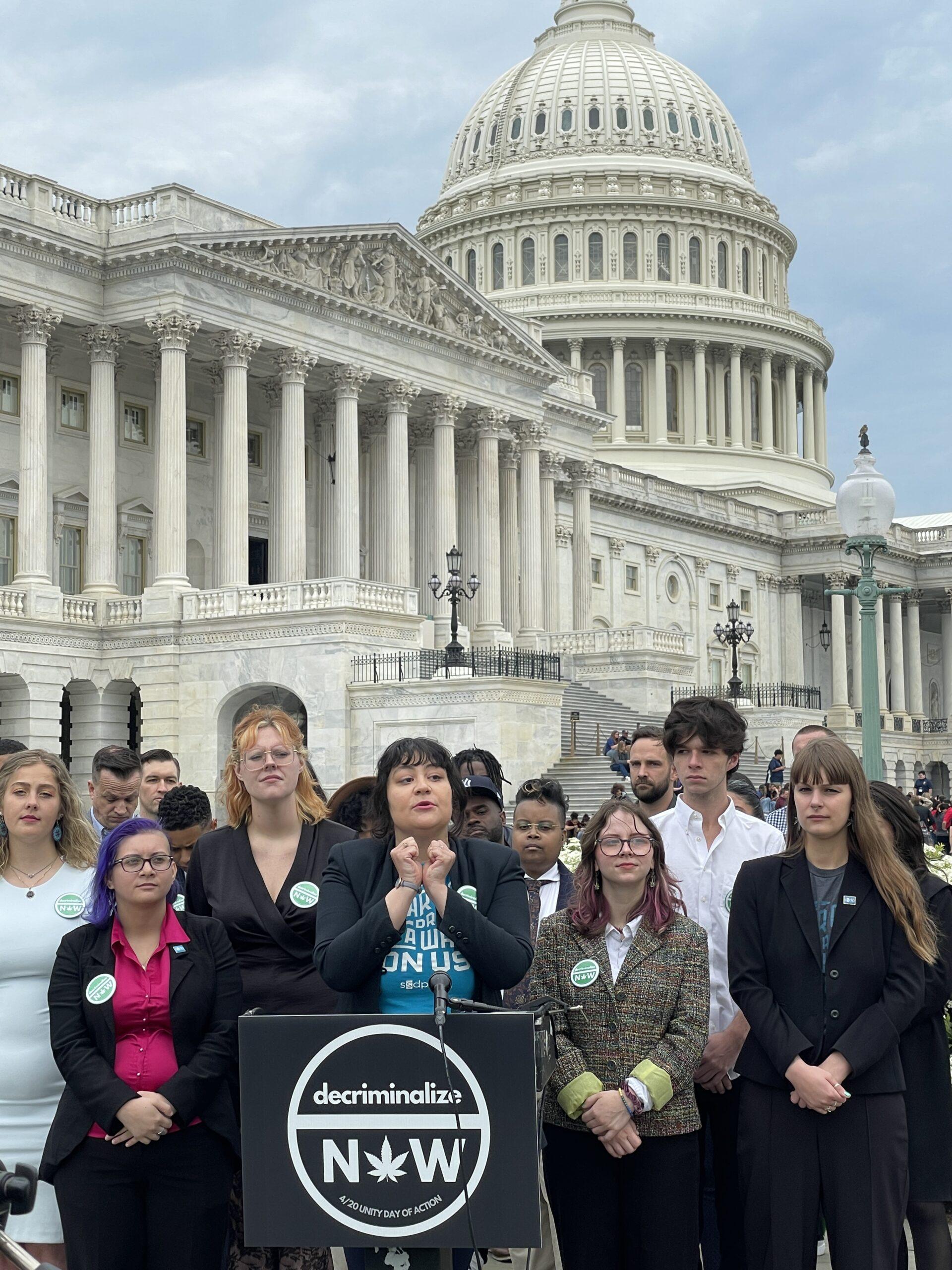
In a world often divided by political lines and industry interests, a groundbreaking movement is stirring. Students for Sensible Drug Policy (SSDP) is leading the charge towards a future where cannabis justice is not just a dream, but a tangible reality.
SSDP’s 420 Week of Unity wasn’t just another date on the calendar, but the heartbeat of SSDP’s 2024 efforts for cannabis justice.
SSDPers from around the country joined together with cannabis activists from across the nation (and the political spectrum) to fight for three key goals:
1. Descheduling marijuana
2. Releasing all cannabis prisoners
3. Clearing cannabis charges from records.
During the course of the week, SSDPers swapped stories, bonded, and strengthened their activist networks. We participated in a press conference designed to educate the press & public about the current status of cannabis, highlighting the need for descheduling & retroactive justice, and clearly demonstrating the unity of cannabis justice advocates from the left, right, and industry. We hosted expungement resource fairs at the National Cannabis Festival and National Cannabis Summit. We helped assemble the largest ever bipartisan coalition of cannabis justice advocates for a massive lobby day in which we made contact with every single legislative office on the Hill. We held forth at a powerful candlelight vigil in front of the White House to remind President Biden of his campaign promises to legalize marijuana, let all cannabis prisoners free, and clear their records—and to draw media attention to these issues. We spoke on panels ranging from cannabis polling to criminal record sealing and lived experiences of those held back by cannabis convictions to bodily autonomy. We hosted the very first harm reduction and overdose prevention panel at D.C.’s almost decade-old National Cannabis Festival. And, we brought boxes of Narcan and test strips to share—and throughout the whole week people kept coming to SSDP to stock up.
SSDPers—including Alumni, current Chapter Members, and Board and Staff—were involved in every stage of this process, and it showed. After the week concluded, SSDP was invited to once again meet with the Biden administration to discuss cannabis decriminalization (our third meeting since planning began), President Biden pardoned 11 people and shortened the sentences of 5 others convicted of non-violent drug crimes, and the Justice Department submitted a proposed regulation to reschedule marijuana. That’s a real win—but it doesn’t go far enough. SSDP is committed to finishing this fight and fully legalizing cannabis this year.
Let’s Legalize Marijuana: Submit a public comment using SSDP’s easy tool to demand marijuana be removed entirely from the Controlled Substances Act.
Thank you to all our chapters for all their hard work this semester.
Young people have always been some of the biggest casualties of the War on Drugs.
The War on Drugs is a War on Us and we will no longer stand by passively and allow it to be fought in our name.
